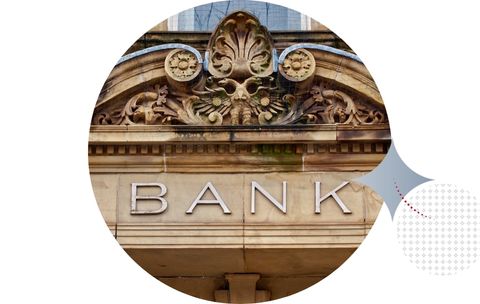Guide to Bank Codes
Bank codes play an essential role when making international payments. Anyone who is new to making foreign payments and using these codes can easily be confused by the number and different types of codes. Find out what the different types of bank codes are and what they mean.

What is a bank code?
3 minute readA bank code is a numerical code assigned to a specific bank so that the bank can be identified during financial transactions such as bank transfers. These codes are national, and they are usually assigned by a country’s banking body or central bank.
Common types of bank codes
There are several different types of bank codes, including:
- IBAN
- BIC and SWIFT codes
- Clearing codes
- Sort codes
What is an IBAN?
An IBAN is an International Bank Account Number. These codes identify bank accounts in the EU, Liechtenstein, Norway, and Switzerland. An IBAN ensures international payments are sent directly to the correct bank accounts. Prior to IBAN, the different account number formats and bank information codes created delays and other difficulties in international transfers. An IBAN includes a two-letter code representing the country, a two-digit control code that allows errors to be identified when long numbers are entered manually, and up to 30 letters and numbers that identify the specific bank and bank account.
What are BIC and SWIFT codes?
Initially, BIC stood for Bank Identifier Code, but the meaning has since been changed to Business Identifier Code. These codes are used to identify specific businesses, usually banks. BIC codes are used when you transfer funds internationally to an overseas bank account. Financial services providers use this type of code to identify where they need to send your money to. In the UK, the first four characters of a BIC code form part of the IBAN.
SWIFT codes are used by the Society for Worldwide Interbank Financial Telecommunication network to identify a bank’s country, location, and branch number when processing an international money order. SWIFT codes are between eight and 11 characters long and are usually displayed on bank statements and in online banking profiles. You can also obtain your SWIFT code by contacting your bank directly. The terms BIC code and SWIFT code are often used interchangeably.
What is a clearing code?
Also known as a National Clearing Code (NCC), clearing number, or routing number, a clearing code is a bank code that is used when you send money to a bank account that does not have an IBAN. Usually, you won’t need a clearing code if you have an IBAN or BIC/SWIFT code. Clearing codes are normally used for payments outside of the European Economic Area (EEA).
What is a sort code?
In the UK, banks use a six-digit sort code to identify the different institutions. This allows banks to identify where the payment originated and to validate where it is being sent to. The first two digits of the code identify the bank, while the other four digits identify the branch. Sort codes were introduced in the 1960s as part of the banking industry’s move toward greater automation. You should be able to find your sort code on your bank statement or on the back of your debit card. Sort codes also form part of IBAN bank codes.
Sign up for a Moneycorp account
Given their importance in international payments, you will need to use bank codes such as IBAN, BIC/SWIFT, and sort codes whether you’re sending a monetary gift to a loved one living abroad or when your business needs to pay a foreign supplier for goods received. Sign up for a personal account or a business account with Moneycorp and enjoy competitive rates and low fees on international payments.


